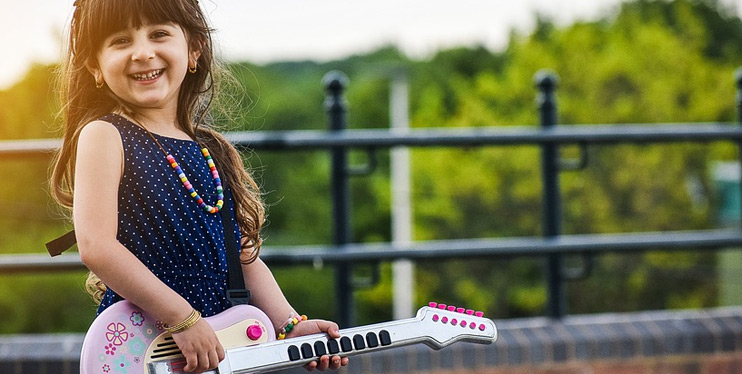Kids who choose to learn musical instruments can bring about a positive transformation in them. Besides mastering the instrument they’re learning to play, they can have many other benefits. Much of these benefits are associated with their mental and physical health.
Music can reduce stress and anxiety, relieve pain, improve respiration, and relax muscle tension. Besides playing the musical instrument, a child must also be encouraged to listen to music, write songs, and sing. However, nothing must be forced. These are the things that must come naturally to the kids.
The perks of learning to play a musical instrument
A study conducted at Northwestern University revealed some interesting aspects of music. According to the study, children must not just sit and listen to music. In order to get all the benefits of music, they must actively engage themselves in learning it. Here are some of the benefits that children can get while learning to play a musical instrument:
1. Improved listening skills
Playing an instrument is not as easy as it appears on the television or live concerts. It demands that the children listen carefully to what they’re playing as well as many different things around them. They need to pay attention to instructions given by their teacher. They also need to focus on pitch, rhythm, and speed. Such levels of concentration would certainly improve their skills not only in music but also in life.
2. Enhanced memory
As the child gets trained in a particular musical instrument, he or she generates, stores, and brings back memories. This happens more effectively in them during practice sessions as they provide a regular workout for the brain. It can also help the child or teen in distracting himself or herself from negative thoughts or pain.
3. Improved mathematical abilities
While it’s a fact that playing a musical instrument is a creative act, it is also associated with math. During the sessions, the child tries to understand the beat, scales, and rhythm. When doing so, he or she learns how to divide, create fractions, and understand patterns. In a way, music trains the kids to understand different aspects of mathematics.
4. Improved coordination
While playing a musical instrument, the brain works at advanced speeds. As the child reads the musical notes, the brain helps translate this into physical motion of playing the instrument. Thus, a good co-ordination is established between the eyes, the brain, and the hands of the kid. This greatly improves the child’s coordination skills.
5. Enhanced reading and comprehension skills
Children and teenagers who learn and play music have to constantly read and understand. They need to identify a note and recognize the pitch to play with their instrument. Besides, they also have to know how long to hold, what finger to use, and how loud to play.
During their sessions, they also have to identify whether the note must be played short and crisp. Sometimes, it is connected to the next note. As they learn such things, they develop some great skills in reading and understanding books at school.
6. The value of perseverance and achievement
It takes a lot of time, practice, and patience to learn and master a musical instrument. During the practice sessions, the kids are given long-term as well as short-term goals by their music teachers. As the children achieve these goals, they feel a sense of achievement and fulfilment. They gain a lot of confidence, which can be immensely beneficial for them in the future.




